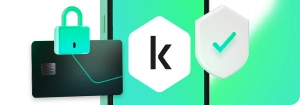
Smart contracts are a type of digital contract stored on a blockchain or distributed ledger technology. When a set of predetermined actions or functions have occurred, smart contracts activate automatically. Once activated, smart contracts are usually irreversible but still trackable.
Since the advent of Bitcoin, blockchain technology has become one of the fastest-growing technologies in modern society. Known primarily for its role in cryptocurrency circles as an innovative distributed ledger technology used to facilitate decentralized trade, blockchain technology has inspired a myriad of other technologies and uses in a variety of different sectors. One of the most popular inventions today is the smart contract. Sometimes incorrectly known as a “Dapp” (which we’ll explain later on in this article), smart contracts are now looking to play an important role in the commercial banking and finance sector.
Originally conceived in 1994 by the renowned American computer scientist Nick Szabo (the same man who proposed a virtual currency called "Bit Gold" in 1998, 10 years before Bitcoin was introduced, and who is consistently rumored to be Bitcoin’s illusive inventor Satoshi Nakamoto), smart contracts were set out to be computerized protocols that would execute the terms of a contract, which could then be traded with low transaction costs because of their secure digital nature.
Smart Contracts Definition
Smart contracts, sometimes incorrectly referred to as a “Dapp”, can be defined as a computer program or transaction protocol designed to run automatically after a set of predetermined conditions have been met. Smart contracts do not contain any legal wording or binding contractual obligations. Rather, they are computer “scripts” designed to facilitate transactions without the use of a third party.
How Do Smart Contracts Work?
Smart Contracts work by exploiting one of the simplest computer programming techniques known to almost all coders and software engineers, the “if” statement. Essentially, statements following the logic “if…then” are coded into a blockchain. This means that a network of computers executes an action(s)/transaction(s) (for example, the exchange of payments) “if” a set of predetermined actions has taken place (for example, two traders have both sent their trades). The blockchain, where this transaction has taken place, is then updated when the transaction is completed. As per the blockchain and its cryptographic technology, this means the transaction cannot be changed and only those with permission can see the results. As you might expect, a smart contract can contain as many “if…then” conditions as needed to satisfy the security obligations of a particular transaction. However, it’s important to have a team of trusted developers and solid overall governance of the blockchain system because this will affect exactly how the smart contracts and the network are initially constructed and later executed.
Smart Contract Examples and Applications?
As you can imagine, there are quite a few examples and applications that have been developed with smart contracts in mind, some of the most innovative are:
- Construction Outlets and franchises have started using blockchain smart contracts to resolve disputes with vendors via real-time communication and increased transaction visibility (due to the public nature of the blockchain) on the supply chain.
- International Finance hubs and organizations are using large-scale blockchain networks with smart contracts, to establish the safer, more efficient, and cheaper trading of financial assets and money.
- Healthcare Organizations, in countries that have private facilities or partially subsidized healthcare, have proposed the of use smart contracts to offer faster and more secure ways for hospitals and insurers to share patient information and distribute results.
What are Dapp?
Dapps, or “dApps”, defined more precisely as decentralized applications, are distributed (often open source) computer programs that operate and run on a blockchain or a peer-to-peer network (P2P). By nature of their decentralized operation, they are not controlled by one single author, company, or organization. Dapps are starting to be used and adopted by a number of different sectors, including gaming, banking, and finance, due to offering greater security and transparency. Dapps use smart contracts to enable their functionalities.
How Do Dapps Work?
Dapps use Smart Contracts to execute predefined rules via code, removing the need for centralized servers and databases (eliminating the risk of single vulnerabilities and points of failure). In the same way that conventional software applications work, Dapps use front-end code to make calls to the back end, but in this case, the back end relies on a blockchain or P2P network, essentially comprised of smart contracts, enabling the application’s functionality. In short, smart contracts allow the front end of the Dapp to communicate with its back end on the blockchain.
Types of Dapps
A number of different types of Dapps have been developed in order to decentralize particular functions and eliminate intermediaries. Equally, although not as widely used, Dapps have been integrated into web browsers to function as plugins to serve ads, track user behavior, or solicit “crypto” donations.
Some of the most popular examples of Dapps that have been developed, or are under development, include:
- Financial services: as was previously foreseen, Dapps have been made to facilitate financial transactions, such as the exchange of currencies or assets.
- Housing: decentralized technologies have been developed to cut down the transaction costs when buying property. Equally, Dapps have been made to aid the tracking of property ownership and documentation, such as deeds.
- Supply Chains: Dapps are being used for increased transparency and accountability by automatically tracking goods through international supply chains.
- Education: One proposed use of Dapps has been in the education sector as a way to create decentralized learning platforms, allowing students and educators to interact and collaborate directly.
- Cyber Security and Identity Verification: decentralized applications have been taken up by the cybersecurity sector as a potential way to safely store and verify identity information. In fact, in the early days of blockchain technology, many considered distributed ledger technology to be a possible new frontier for cybersecurity in general. However, due to its computing-intensive nature, other avenues have become more desirable.
- Healthcare: much like we mentioned above, Dapps (via smart contracts) are ideal for storing and tracking healthcare records, especially in an international setting.
- NFTs: a number of Dapps are equally used to provide a decentralized marketplace for the trading of NFTs. Many enthusiasts prefer Dapps because of the transparency and security benefits of using blockchain technology to trade.
Benefits of Smart Contracts?
There are a number of benefits to using smart contracts in today’s digital landscape, the main ones are that smart contracts tend to be:
- Efficient: as smart contracts are fully digital and automatically triggered, they avoid costly and lengthy processes, such as manually filling out documents and error management.
- Secure: as the smart contracts are on the blockchain, records, and transactions are encrypted, accountable to all others on the chain, and immutable (meaning the programming cannot be changed).
- Transparent: as mentioned above, by nature of working on a decentralized ledger/network, all participants in the chain have access to the transactions undertaken by each smart contract. This leaves all members of the process accountable to all other parties involved.
Vulnerabilities
Despite the revolution that the blockchain offers through its use of smart contracts and Dapps, it is still not a perfect system. Since the advent of distributed ledger technology, hackers have become increasingly more sophisticated. As a result, we recommend using all-inclusive cybersecurity software, like Kaspersky Premium, as a kind of protective shield for your blockchain network. Equally, if you want to access a part of the chain or trigger a smart contract, whilst you’re away from your main system, we recommend using a VPN. A Virtual Private Network works by creating an encrypted private tunnel between a user’s remote computer and any external servers, so your data or transactions will remain protected from any outside threats to the network, particularly when you’re on the move.
Smart Contract FAQs
What are Smart Contracts?
Smart Contracts are a type of digital contract stored on a blockchain or distributed ledger technology. They are computer software programs designed to run automatically after a set of predetermined conditions has been met. Smart contracts do not contain any legal wording or binding contractual obligations, only computer code.
Are Smart Contracts the same as Dapps?
Not quite. Smart contracts are quite often used by Dapps to communicate with the blockchain, much like an interface. Smart contracts can be seen as mechanisms that allow the front-end code to call the back-end code of the decentralized application.
What are Dapps?
Dapps, or “dApps”, are decentralized applications. They are distributed (often open-source) computer programs that operate and run on a blockchain, or a peer-to-peer network (P2P). Like other apps, they use front-end code to make calls to the back end, but the back-end relies on a blockchain technology comprised of smart contracts to enable functionality.
Types of Dapps?
Dapps, or decentralized applications (dApps), can be divided into a number of different types and categories based on the sector that they are used in, including crypto wallets and storage, crypto exchange, business and finance, gaming, social media, governance and development, property, cybersecurity, insurance and health, banking, and retail.
Smart Contracts in Healthcare?
Smart contracts are increasingly being used in the world of privatized and subsidized healthcare via the creation of specially made Dapps, or decentralized applications. This is because smart contracts are ideal for storing and tracking healthcare records, sensitive patient information, and communicating/sharing knowledge securely in an international setting.
Recommended Articles and Links:
- 5 Considerations for Hybrid Cloud Security
- What is Bitcoin?
- Common Cryptocurrency Scams and How to Avoid Them?
- What is Cryptocurrency and How Does It Work?
Recommended products:


